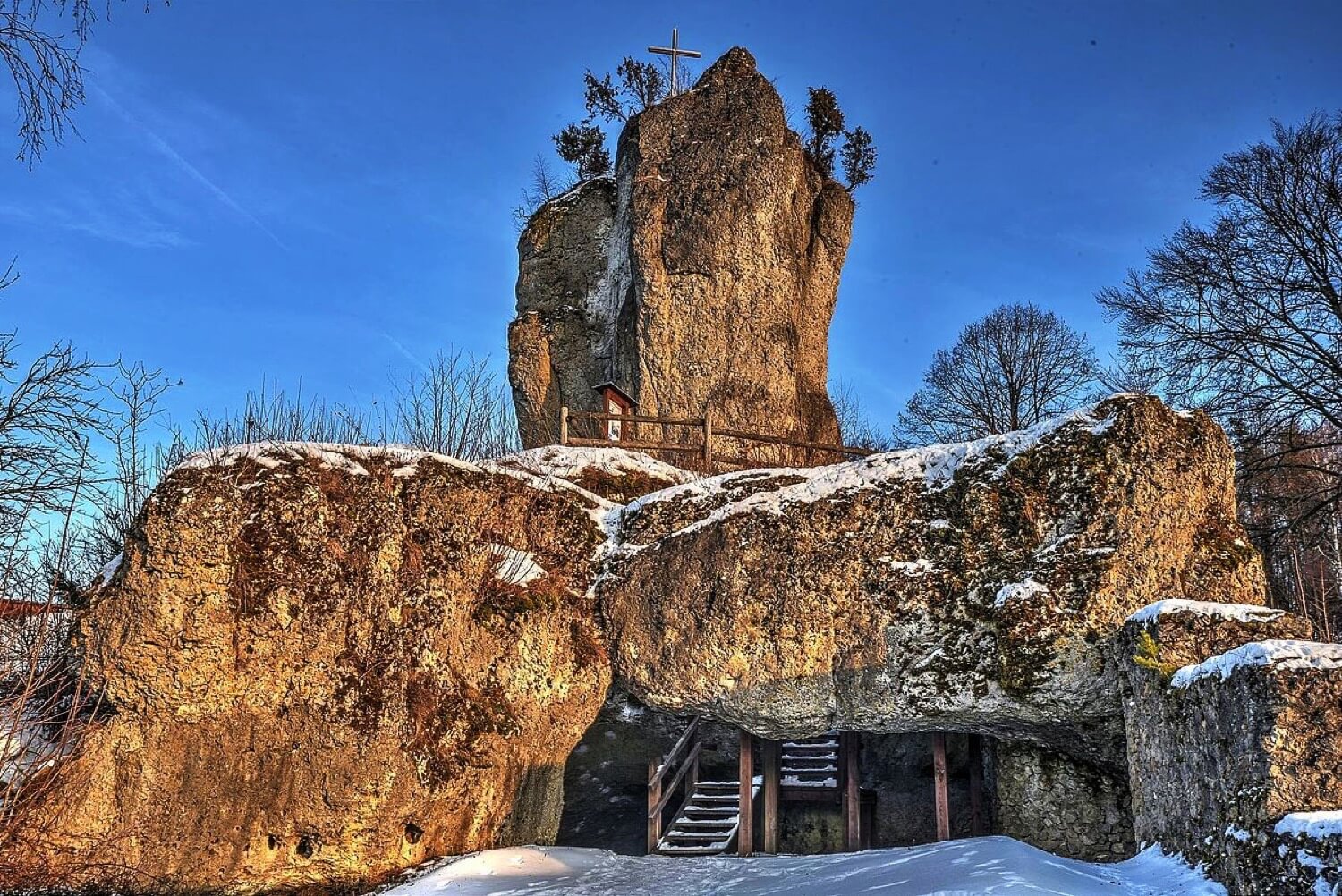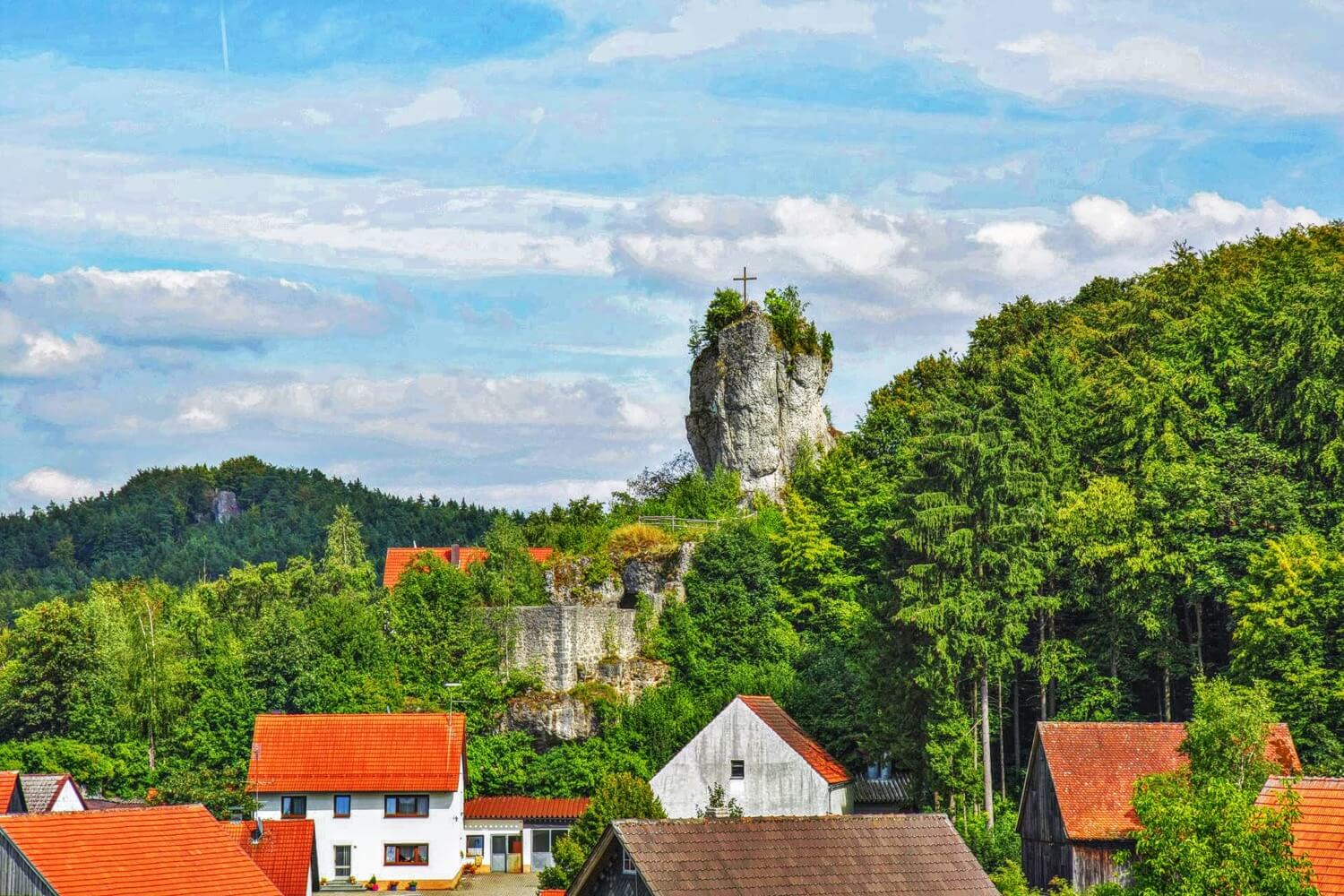Bärnfels Castle
Oberfranken Bayern Germany
castle, chateau
Burg Bärnfels
Oberfranken Bayern Germany
castle, chateau
The ruins of Bärnfels Castle (German: Burg Bärnfels) are the remains of a late mediaeval aristocratic castle on the southern edge of the village of Bärnfels in the municipality of Obertrubach in the Upper Franconian county of Forchheim in Bavaria
Die Ruine der Burg Bärnfels ist der Rest einer spätmittelalterlichen Adelsburg am Südrand des Dorfes Bärnfels in der Gemeinde Obertrubach im oberfränkischen Landkreis Forchheim in Bayern
Previous names
Bärnfels Castle, Burg Bärnfels
Description
The ruins of Bärnfels Castle (German: Burg Bärnfels) are the remains of a late mediaeval aristocratic castle on the southern edge of the village of Bärnfels in the municipality of Obertrubach in the Upper Franconian county of Forchheim in Bavaria. The ruins of the spur castle are freely accessible.
The ruins of the castle stand on craggy hill spur at a height of 515 m above sea level (NN), the so-called Bergschmidtsknock, above the eponymous village in the Franconian Switzerland-Veldenstein Forest Nature Park, about 2.2 kilometres north of the church at Obertrubach.
The ruins may be reached from the village of Bärnfels by climbing up a number of steps.
In the vicinity are several other castles. Towards the east are the ruins of Leienfels Castle, to the southeast is the site of Leupoldstein Castle and to the south is another burgstall in Obertrubach. To the north is the still inhabited castle of Gößweinstein.
The first record of the castle is dated 2 August 1389, when its occupants, Conrad Hans and Ulrich of Egloffstein zu Bärenfels had to concede their outer bailey, the so-called Lower Fortress (niedere Veste), as a fief following a feud with the Landgraves of Leuchtenberg. The castle had, however, been built much earlier, probably in 1330 by Siboto I of Egloffstein, progenitor of the Bärenfels line of this family.
In 1483 the fief went to the Gaillenreuth line of the Egloffsteins, who did not hold it for long however, because in 1495 the last enfeoffment was granted by the Leuchtenberg landgrave.
After the castle had been razed in the Peasants' War in 1525 by Egloffstein's subjects, it was never completely repaired again.
In 1580 the Barony of Bärnfels together with its castle ruins was sold to the Bishopric of Bamberg and was seized by the Bavarian state in 1802 as part of the secularisation in Bavaria.
Because large parts of the castle were in danger of collapse, it was demolished in the 19th and 20th centuries. In 1877 Nuremberg chemist, Kleemann, bought the site and had the few surviving remains restored.
After a further renovation was carried out in 1969 by the municipality of Bärnfels it was able to be made accessible to visitors again.
Today the castle ruins of Bärnfels are once more owned by the Egloffstein family, whose ancestor probably once built the castle.
Die Ruine der Burg Bärnfels ist der Rest einer spätmittelalterlichen Adelsburg am Südrand des Dorfes Bärnfels in der Gemeinde Obertrubach im oberfränkischen Landkreis Forchheim in Bayern. Die Burgruine der Spornburg ist jederzeit frei zugänglich.
Die Ruine der Spornburg erhebt sich auf einem mit Felsen durchsetzten breiten 515 m ü. NN hohen Bergsporn des sogenannten Bergschmidtsknocks über dem gleichnamigen Ort im Naturpark Fränkische Schweiz-Veldensteiner Forst, etwa 2,2 Kilometer nördlich der Kirche von Obertrubach.
Man erreicht die Burgruine vom Dorf Bärnfels aus über einige Stufen.
In östlicher Richtung befindet sich in der Nähe die Burgruine Leienfels, südöstlich der Burgstall Leupoldstein und südlich ein Burgstall in Obertrubach. In nördlicher Richtung steht die Burg Gößweinstein.
Die erste Erwähnung der Burganlage ist auf den 2. August 1389 datiert, als die damaligen Besitzer Konrad Hans und Ulrich von Egloffstein zu Bärenfels ihre Vorburg, die so genannte Niedere Veste, nach einer Fehde mit dem Landgrafen von Leuchtenberg diesem zu Lehen übertragen mussten. Erbaut wurde die Burg jedoch schon bedeutend früher, vermutlich 1330 durch Siboto I. von Egloffstein, Stifter der Bärenfelser Linie dieser Familie.
1483 kam das Lehen an die Gaillenreuther Linie der Egloffsteiner, die es jedoch nicht allzu lang innehatte, denn 1495 erfolgte die letzte Belehnung durch die Leuchtenberger Landgrafen.
Nachdem die Burg während der Bauernkriege 1525 von egloffstein'schen Untertanen niedergebrannt worden war, wurde sie nie wieder vollständig instand gesetzt.
1580 kam die Herrschaft Bärnfels mitsamt der Burgruine durch Verkauf an das Hochstift Bamberg und wurde durch die Säkularisation 1803 bayerischer Staatsbesitz.
Da große Teile der Anlage einsturzgefährdet waren, wurden sie im 19. und 20. Jahrhundert abgebrochen. 1877 erwarb der Nürnberger Apotheker Kleemann die Anlage und ließ die wenigen Reste erstmals restaurieren.
Nach einer Sanierung der Ruine im Jahr 1969 durch die damalige Gemeinde Bärnfels konnte sie wieder Besuchern zugänglich gemacht werden.
Heutzutage ist die Burgruine Bärnfels wieder im Besitz der Familie von Egloffstein, deren Urahn sie wahrscheinlich einst erbaute.
Nearby castles
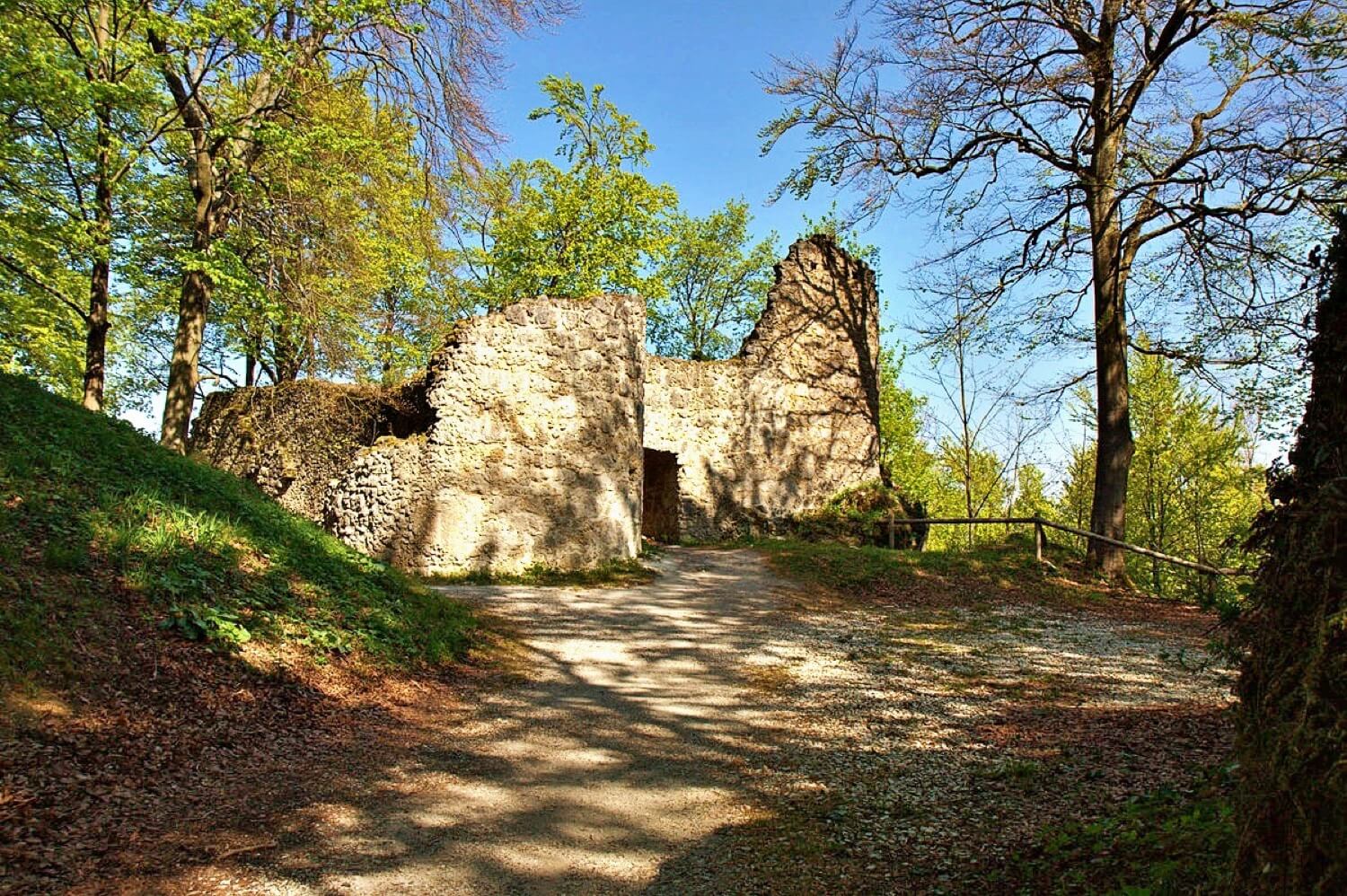
Leienfels Castle
Oberfranken
2.0km
castle, chateau
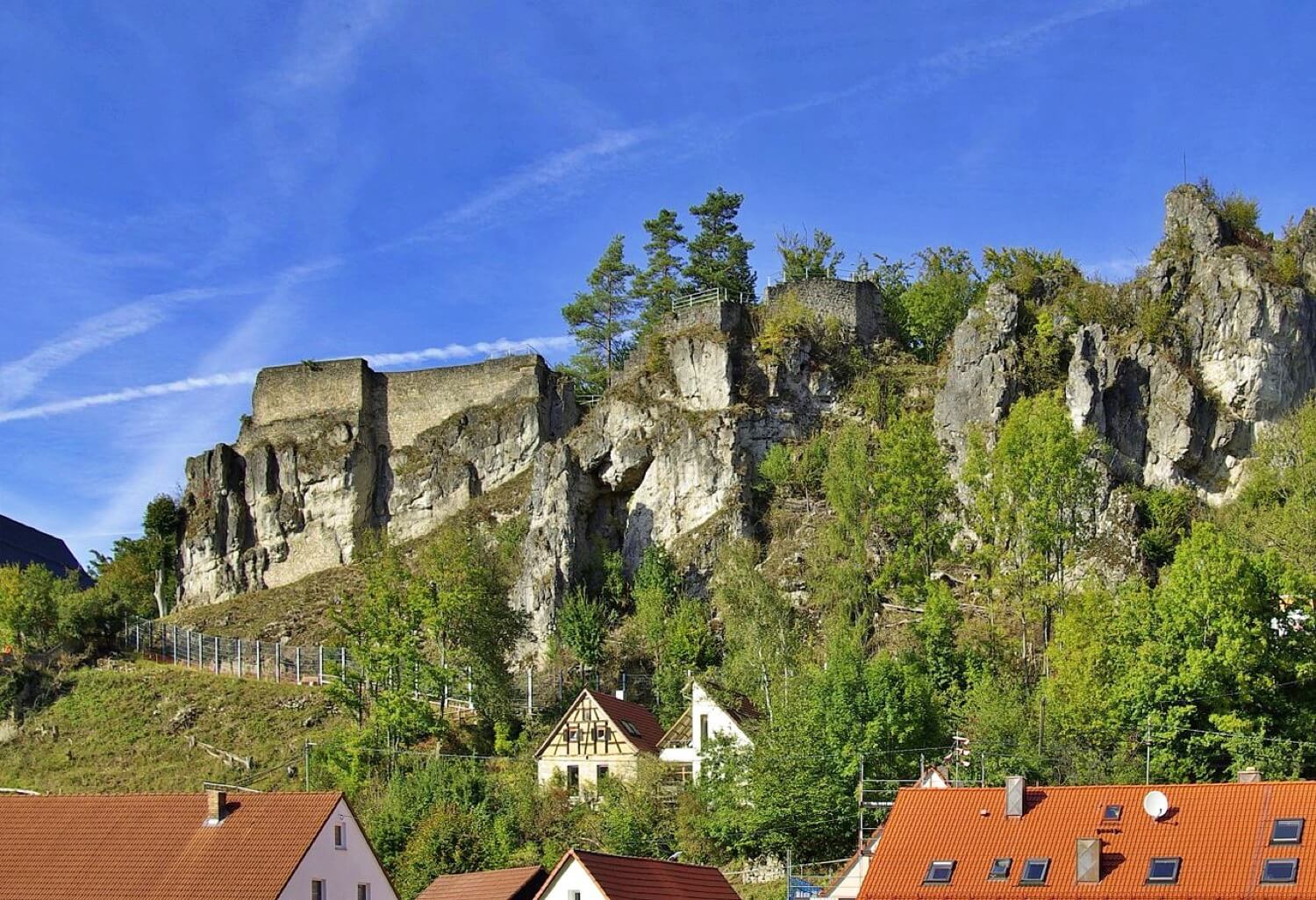
Wolfsberg Castle (Obertrubach)
Oberfranken
3.7km
castle, chateau

Gößweinstein Castle
Oberfranken
6.3km
castle, chateau
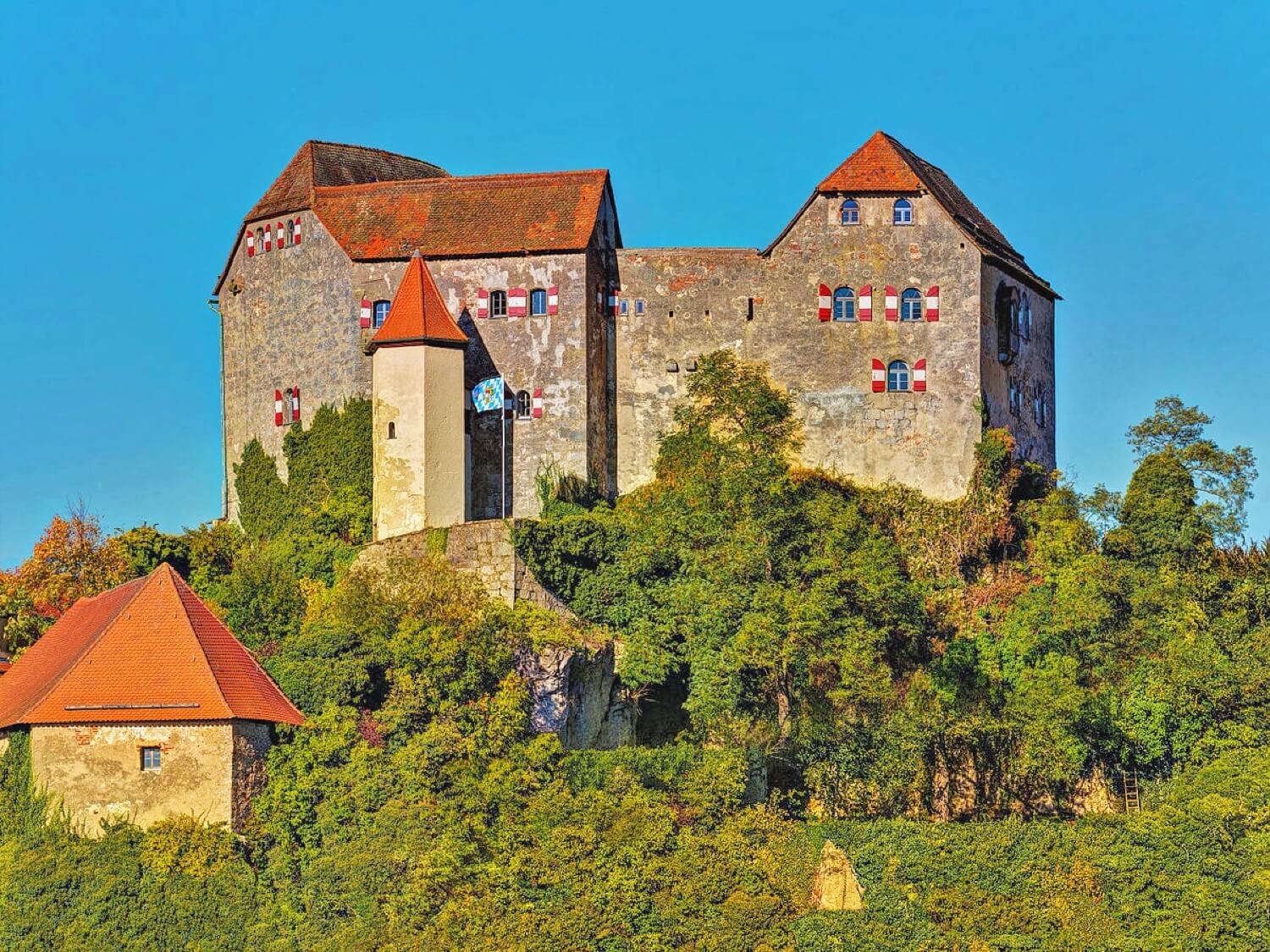
Hiltpoltstein Castle
Oberfranken
6.3km
castle, chateau
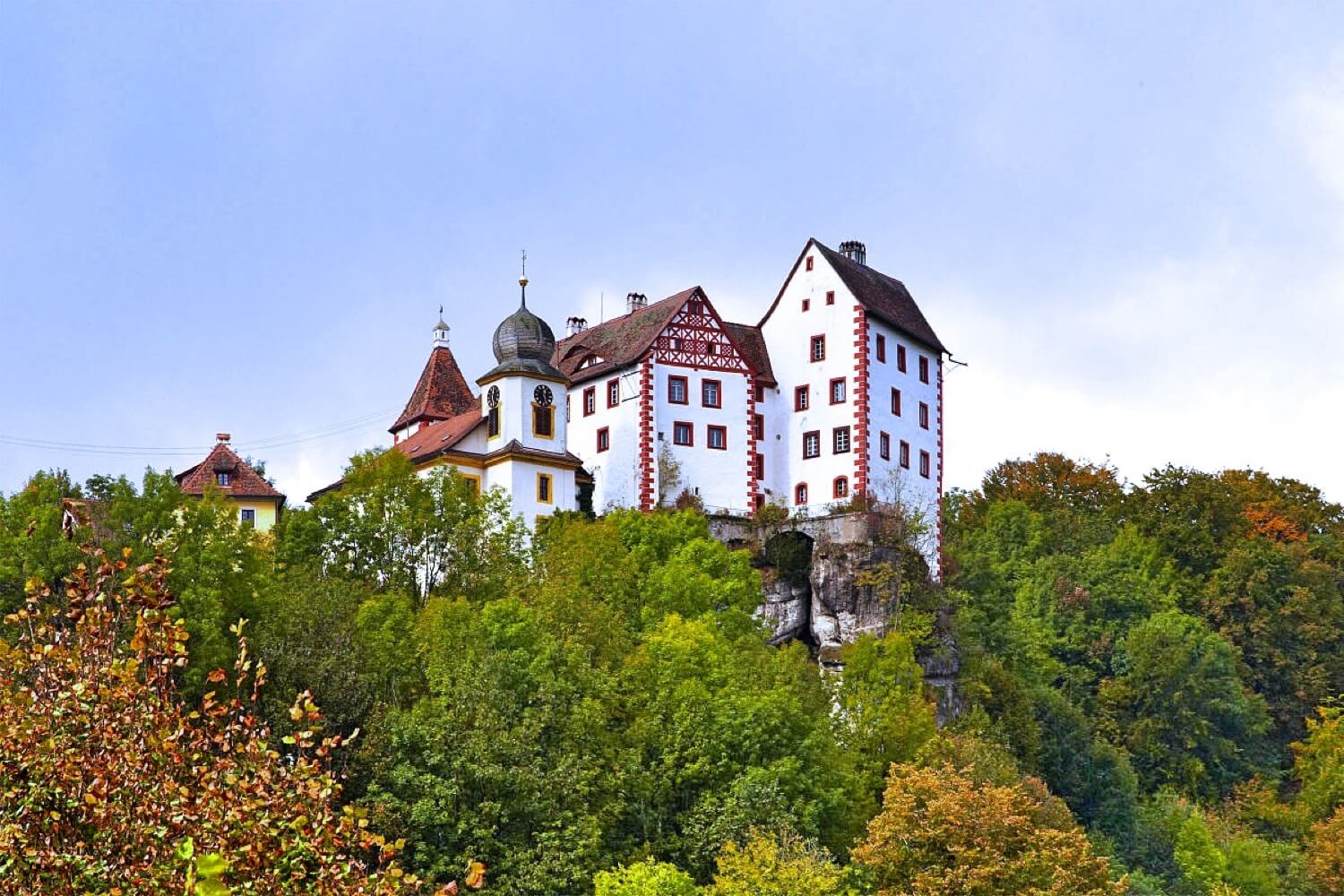
Egloffstein Castle
Oberfranken
6.3km
castle, chateau
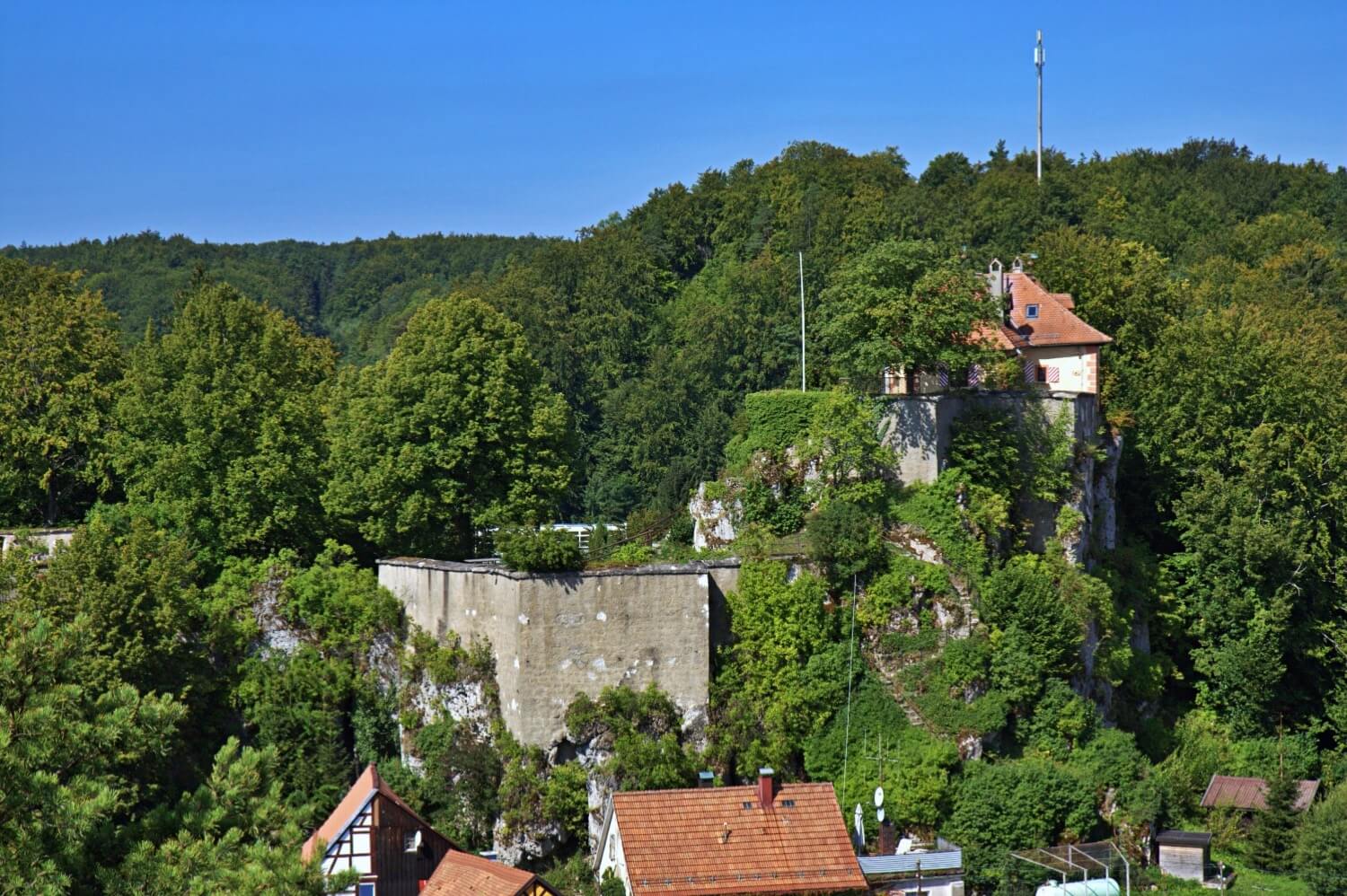
Burg Betzenstein
Oberfranken
6.4km
castle, chateau
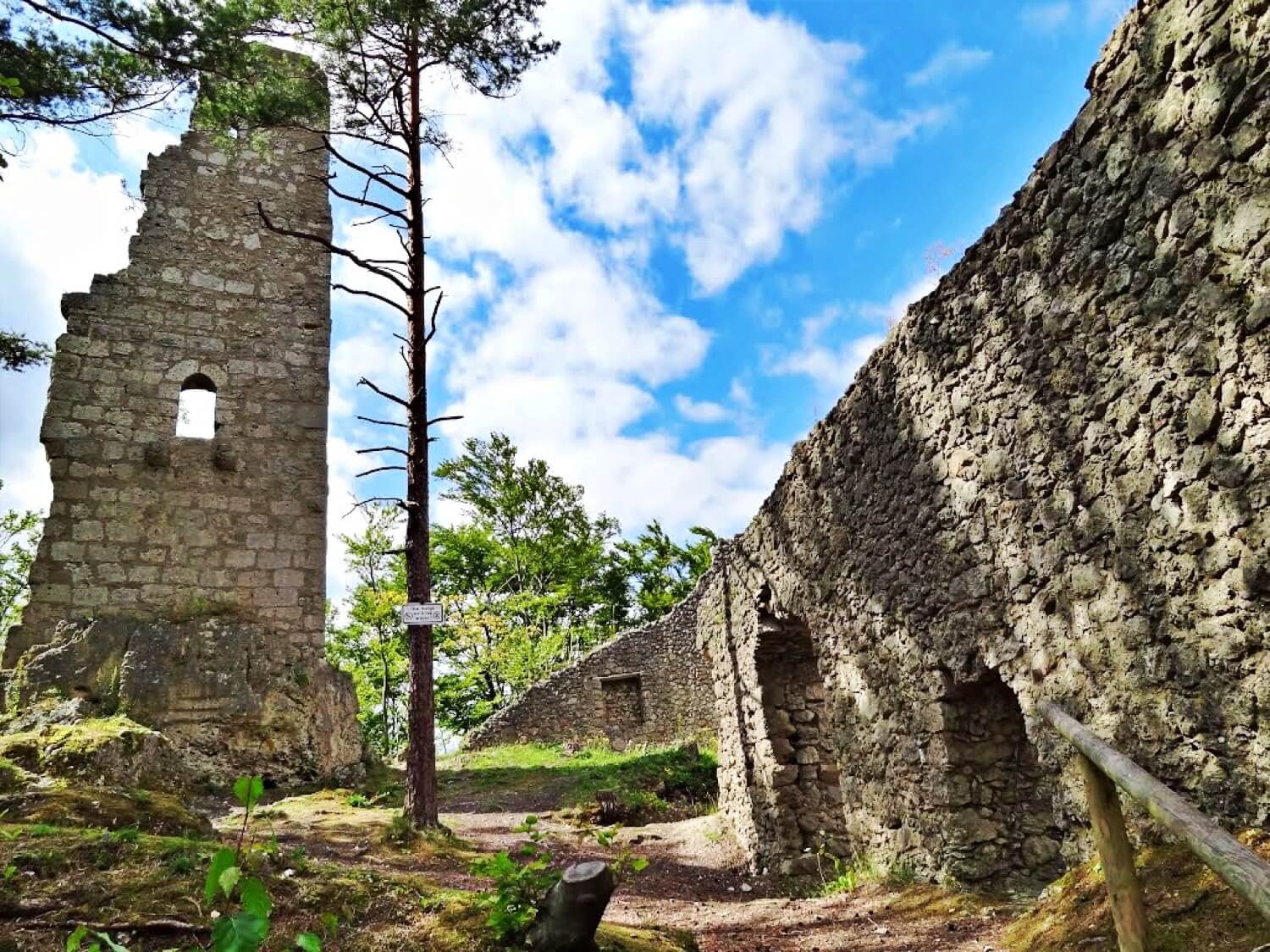
Burgruine Wildenfels
Mittelfranken
6.5km
castle, chateau
